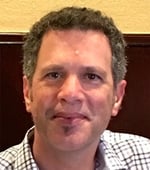UC San Diego Accreditation Statement
The University of California, San Diego School of Medicine is accredited by the Accreditation Council for Continuing Medical Education to provide continuing medical education for physicians.
Medical Credit Designation Statement
The University of California, San Diego School of Medicine is accredited by the Accreditation Council for Continuing Medical Education to provide continuing medical education for physicians.
AMA: The University of California, San Diego School of Medicine designates this enduring activity for a maximum of 1.25 AMA PRA Category 1 Credit™. Physicians should claim only the credit commensurate with the extent of their participation in the activity.
AAPA: AAPA accepts certificates of participation for educational activities certified for AMA PRA Category 1 Credit™ from organizations accredited by the ACCME or a recognized state medical society. Physician assistants may receive a maximum of 1.25 hours of Category 1 credit for completing this program.
NURSES: For the purpose of recertification, the American Nurses Credentialing Center accepts AMA PRA Category 1 Credit™ issued by organizations accredited by the ACCME. For the purpose of relicensure, the California Board of Registered Nursing accepts AMA PRA Category 1 Credit™ (report up to 1.25 hours of credit and list "CME Category 1" as the provider number).
UC San Diego Disclosure Statement
It is the policy of the University of California, San Diego School of Medicine to ensure balance, independence, objectivity and scientific rigor. All persons involved in the selection, development and presentation of content are required to disclose any real or apparent conflicts of interest. All conflicts of interest will be resolved prior to an educational activity being delivered to learners through one of the following mechanisms 1) altering the financial relationship with the commercial interest, 2) altering the individual’s control over CME content about the products or services of the commercial interest, and/or 3) validating the activity content through independent peer review. All persons are also required to disclose any discussions of off label/unapproved uses of drugs or devices. Persons who refuse or fail to disclose will be disqualified from participating in the CME activity.
UC San Diego Cultural and Linguistic Competency Statement
This activity is in compliance with California Assembly Bill 1195 which requires continuing medical education activities with patient care components to include curriculum in the subjects of cultural and linguistic competency. Cultural competency is defined as a set of integrated attitudes, knowledge, and skills that enables health care professionals or organizations to care effectively for patients from diverse cultures, groups, and communities. Linguistic competency is defined as the ability of a physician or surgeon to provide patients who do not speak English or who have limited ability to speak English, direct communication in the patient’s primary language. Cultural and linguistic competency was incorporated into the planning of this activity. Additional resources can be found on the UC San Diego CME website.
Planning Committee
Christopher Anderson
Program Director, California Smokers’ Helpline
University of California, San Diego
Moores Cancer Center
Kirsten Hansen, MPP
Curriculum Development Manager, Center for Tobacco Cessation
University of California, San Diego
Moores Cancer Center
Gary Tedeschi, PhD
Clinical Director, California Smokers’ Helpline
University of California, San Diego
Moores Cancer Center






 Dr. Tedeschi is a licensed psychologist (#PSY 14241) at the University of California-San Diego School of Medicine, Moores Cancer Center. He has worked there since 1994 as the Clinical Director of the California Smokers' Helpline and the Center for Tobacco Cessation. At the Helpline he is responsible for clinical supervision, counseling protocol development, counselor training, and continuing education. At the Center he provides technical assistance and training for medical and behavioral health professionals on tobacco cessation interventions. Dr. Tedeschi also has several years of previous clinical experience providing psychotherapy for individuals, couples and groups in settings including community mental health, psychiatric in-patient, and university counseling centers. He teaches graduate courses in counseling part time and maintains a small practice in consulting psychology. Dr. Tedeschi holds a Ph.D. in counseling psychology from the University of Missouri, Kansas City; an M.A. in counseling psychology from Boston College; and a B.A. in psychology from Kutztown University of Pennsylvania.
Dr. Tedeschi is a licensed psychologist (#PSY 14241) at the University of California-San Diego School of Medicine, Moores Cancer Center. He has worked there since 1994 as the Clinical Director of the California Smokers' Helpline and the Center for Tobacco Cessation. At the Helpline he is responsible for clinical supervision, counseling protocol development, counselor training, and continuing education. At the Center he provides technical assistance and training for medical and behavioral health professionals on tobacco cessation interventions. Dr. Tedeschi also has several years of previous clinical experience providing psychotherapy for individuals, couples and groups in settings including community mental health, psychiatric in-patient, and university counseling centers. He teaches graduate courses in counseling part time and maintains a small practice in consulting psychology. Dr. Tedeschi holds a Ph.D. in counseling psychology from the University of Missouri, Kansas City; an M.A. in counseling psychology from Boston College; and a B.A. in psychology from Kutztown University of Pennsylvania.



